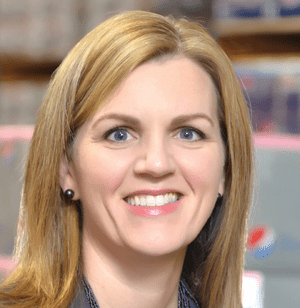Initiative 522 on the November ballot would increase food costs in our state and provide consumers with unreliable and inaccurate labeling information. It’s a misleading measure that fails to deliver on its fundamental promise to help consumers make more informed choices.
Corwin Beverage, our employees, and our customers will be caught in I-522’s web of misleading requirements and higher costs. We’re a family-owned, local company firmly-rooted in Southwest Washington. We started in 1941 with one truck and three employees. Today we have more than 100 trucks, more than 100 employees and we sell more than 400 beverage and snack food items in a very competitive industry.
We are among thousands of other Washington food companies and farmers that would be saddled with the costly and burdensome new requirements of I-522. This would make our products more expensive – without providing any health or safety benefit to consumers.
For example, the products we distribute to grocery stores and the products we deliver to restaurants would be labeled differently under the terms of I-522, even if they are the exact same product. The difference would occur solely because I-522’s food labeling requirements includes food and beverage products sold in grocery stores but exempts foods and beverages sold in restaurants.
If Initiative 522 passes, food producers would be required to place a misleading label on products made with “genetically engineered” ingredients in order to sell them here in Washington – unless these products are specially remade with higher priced ingredients just to be sold in our state. Science and medicine agree that GE foods, grown by farmers for decades, are just as safe and healthy as non-GE foods. Remaking food products with more expensive, specially handled non-GE ingredients just to be able to sell them in Washington without a misleading label is a business decision that is tough to swallow.
In turn, the added costs, documentation and special handling I-522 would require would put our company and many other food manufacturers at a competitive disadvantage with those in other states. As a business operating in a border community, this competitive disadvantage becomes even more complex and carries an even heavier burden.
Most importantly, I-522 will not provide consumers with accurate or reliable food labels. That’s because the measure is so poorly written that it would require thousands of food products to be labeled as “genetically engineered,” even though they may not be. In addition, two-thirds of the foods we buy in Washington would be exempt from labeling under I-522, even if these foods do contain GE content or are made with GE ingredients. Adding to the confusion, I-522 requires fruits, vegetables and grain-based products to be labeled, but exempts meat and dairy products like milk, meat, chicken, eggs and cheese – even when these food products come from animals fed GE grain. Fruit juice would require labels, but alcoholic beverages made with the same GE ingredients would be exempt.
Consumers can already make more informed choices under our existing labeling system, which is better and more reliable than the regulations proposed by I-522. Consumers can choose certified organic food, or select from thousands of foods that are already voluntarily labeled as “non-GMO.”
Integrity is one of the values we have built our business on, so the safety of our customers, accuracy in food labeling and supplying consumers with reliable information is paramount to us. I-522 will provide consumers misleading information and end up costing us all. Please look into the facts about I-522 and join me in voting NO.
Heidi Piper Schultz is the vice president at Corwin Beverage Co. She can be reached at heidi_schultz@corwinbevco.com.





